15 years one-stop China custom CNC machining parts factory

Hey there I’m VMT Sam!
With 25 years of CNC machining experience we are committed to helping clients overcome 10000 complex part-processing challenges all to contribute to a better life through intelligent manufacturing. Contact us now
 213 |
Published by VMT at May 28 2024
213 |
Published by VMT at May 28 2024
Introduction
With the continuous advancement of medical technology, the design and manufacture of medical devices have become increasingly precise and complex. Medical grade plastics, as a crucial material in the manufacturing of medical devices, have garnered significant attention in the industry due to their safety, reliability, and functionality. This article aims to explore the safety of medical grade plastics, the reasons for choosing polymers for medical applications, the common types of thermoplastics used in medical injection molding, and the advantages of medical grade plastics in the healthcare industry. Additionally, we will introduce VMT's plastic CNC machining services and address some common questions about medical plastic CNC machined parts.
1. Are Medical Grade Plastics Safe?
Medical grade plastics are designed and manufactured in strict compliance with industry standards and regulations to ensure their safety and reliability. These plastics typically exhibit excellent chemical stability, biocompatibility, and mechanical properties, meeting the various needs of medical devices in clinical applications. Furthermore, the composition and processing conditions of medical grade plastics are rigorously controlled during manufacturing to ensure they do not pose any harmful effects on the human body.
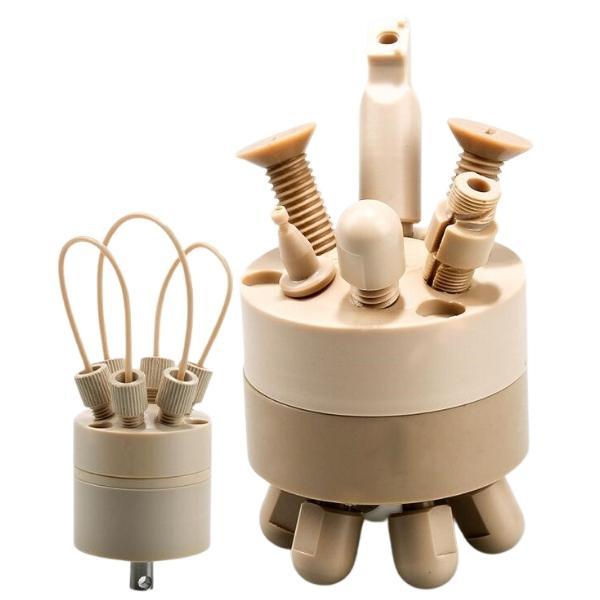
2. Why Choose Polymers for Medical Applications?
Polymer materials are widely used in the medical field due to their unique advantages. Firstly, they offer excellent biocompatibility, ensuring compatibility with human tissues without causing adverse reactions. Secondly, polymers exhibit superior chemical stability, resisting a variety of chemicals and maintaining performance in complex environments. Additionally, polymers are highly processable and moldable, allowing the manufacture of medical devices in various shapes and sizes.
Biocompatibility: Polymers generally have good biocompatibility, meaning they can coexist with human tissues, reducing the risk of rejection and infection. This is crucial for medical devices that need to be implanted in the body for extended periods.
Processability: Polymers are easy to process and form into complex shapes and structures through various methods such as injection molding, extrusion, and compression molding. This allows for diverse designs in medical devices.
Chemical Stability: Polymers often exhibit excellent chemical stability, resisting many chemicals, including common disinfectants, ensuring medical devices maintain their performance and safety during use and cleaning.
Physical Properties: Polymers have a range of superior physical properties, such as wear resistance, fatigue resistance, and impact resistance. These properties help medical devices maintain their stability and reliability in complex medical environments.
3. Seven Common Thermoplastics in Medical Injection Molding
Polyethylene (PE): Commonly used in disposable syringes, infusion sets, and catheters due to its excellent chemical stability and biocompatibility.
Polypropylene (PP): Known for its superior heat resistance and chemical resistance, it is used in high-temperature and corrosion-resistant medical devices like respirator masks and oxygen masks.
Polymethyl Methacrylate (PMMA): Offers excellent transparency and weather resistance, making it ideal for ophthalmic surgical instruments and dental restorative materials.
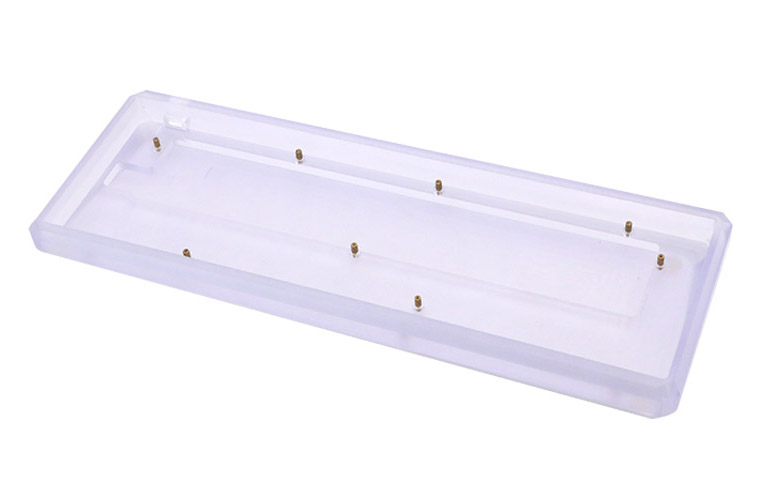
Polyvinyl Chloride (PVC): Valued for its flexibility and corrosion resistance, commonly used in blood dialysis tubing and transfusion lines.
Polyamide (PA): High strength and wear resistance make it suitable for surgical instruments and sutures.
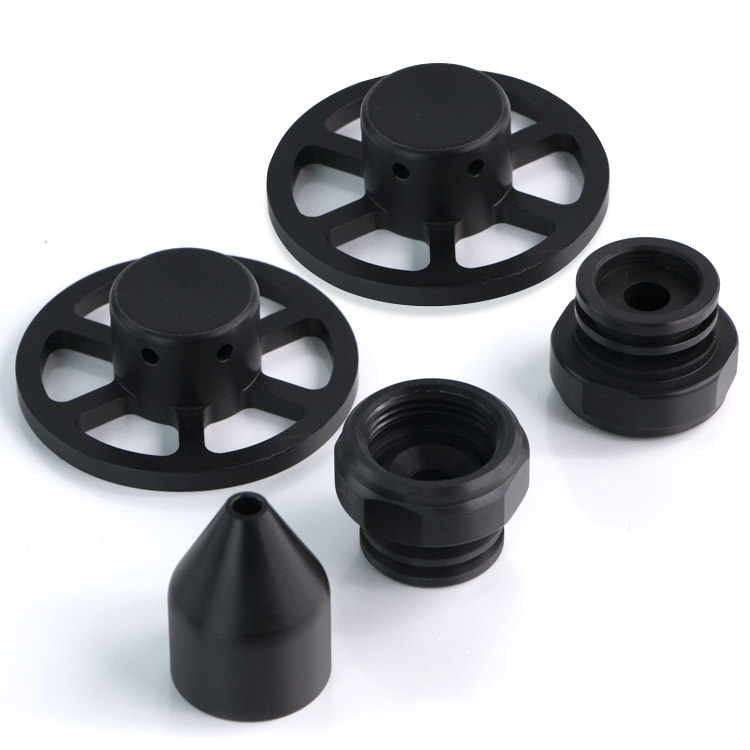
Acrylonitrile Butadiene Styrene (ABS): Provides good impact resistance and processability, used in medical devices requiring high strength and toughness.
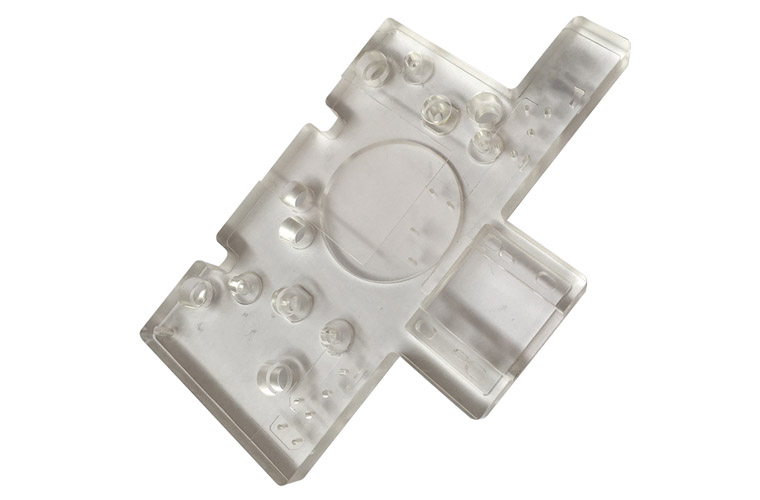
Polycarbonate (PC): High transparency and heat resistance make it suitable for observation windows and housings of medical equipment.
4. Advantages of Medical Grade Plastics in the Healthcare Industry
Versatility: Medical grade plastics can be customized to meet diverse functional, shape, and size requirements of medical devices.
Sterilizability: They can withstand various sterilization methods, such as autoclaving and ethylene oxide sterilization, due to their excellent heat and chemical resistance.
Infection Resistance: Some medical grade plastics possess antibacterial and antiviral properties, reducing the risk of infection during use.
Cost-Effectiveness: They offer lower costs and longer service life, providing cost savings for healthcare institutions.
Environmental Friendliness: Their design and manufacturing processes emphasize sustainability, aligning with the trend of green healthcare.
Innovation Potential: Continuous advancements in technology enhance the material properties, processing techniques, and application fields of medical grade plastics, fostering more possibilities for the development of medical devices.
5. VMT Plastic CNC Machining Services
VMT Plastic CNC Machining Services aim to provide high-quality medical grade plastic CNC machined parts to customers. With advanced CNC machining equipment and a professional technical team, we meet various demands for precision, shape, and size. We also offer customized services tailored to specific client requirements.

6. Conclusion
As a critical material in the manufacturing of medical devices, medical grade plastics possess excellent properties and broad application prospects. With the continuous advancement of medical technology and expanding market demands, medical grade plastics will play an increasingly important role in the medical field. As experts in CNC machined parts manufacturing, we will continue to monitor the development of medical grade plastics and provide high-quality, efficient services to our clients.
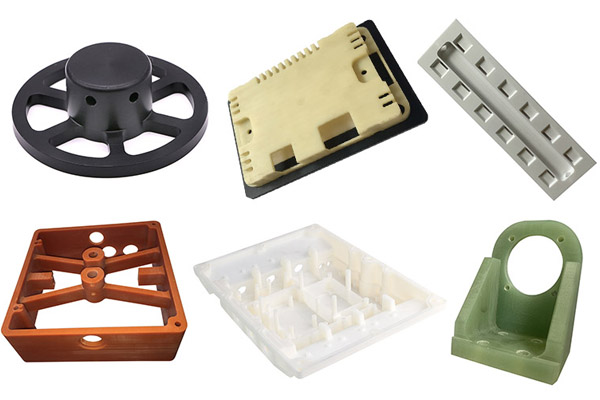
7. Common Questions about Medical Plastic CNC Machined Parts
Q: What is the difference between medical grade plastics and regular plastics?
A: Medical grade plastics have stricter and more complex requirements in terms of material properties, biocompatibility, and processing standards compared to regular plastics. They undergo rigorous testing and certification to ensure their safety and reliability.
Q: How to choose the right material for medical injection molding?
A: Choosing the right material requires considering multiple factors, such as the functional requirements, usage environment, and sterilization methods of the medical device. Cost, processability, and environmental impact are also important. It is advisable to consult with professional technicians or refer to relevant standards and regulations.
Q: How is the machining accuracy of medical plastic CNC machined parts ensured?
A: Machining accuracy is crucial for ensuring the quality and performance of medical plastic CNC machined parts. We use advanced CNC machining equipment and precision measuring tools to strictly control the machining process. Additionally, a comprehensive quality management system monitors and inspects raw materials, the machining process, and the final products to ensure every part meets client specifications and standards.
Q: How is the sterilization of medical plastic CNC machined parts performed?
A: After manufacturing, medical plastic CNC machined parts undergo sterilization to ensure sterility during use. Common sterilization methods include autoclaving, ethylene oxide sterilization, and radiation sterilization. The specific method depends on the material, structure, and use of the medical device. Our CNC machining facility is equipped with professional sterilization equipment and can provide sterilization services as required, along with corresponding sterilization certification.
Q: What are the environmentally friendly options for medical plastic CNC machined parts?
A: With increasing environmental awareness, more healthcare institutions are focusing on the environmental friendliness of medical plastic CNC machined parts. Some available options include biodegradable or recyclable medical grade plastic materials such as Polylactic Acid (PLA) and Polyhydroxyalkanoates (PHA). These materials can be broken down by natural microorganisms or recycled, reducing environmental impact. When selecting medical plastic CNC machined parts, consider using these environmentally friendly materials.
Ready To Start Your Next Project?
Get Instant Quote

Request a Free Quote
Send us a message if you have any questions or request a quote. We will get back to you ASAP!